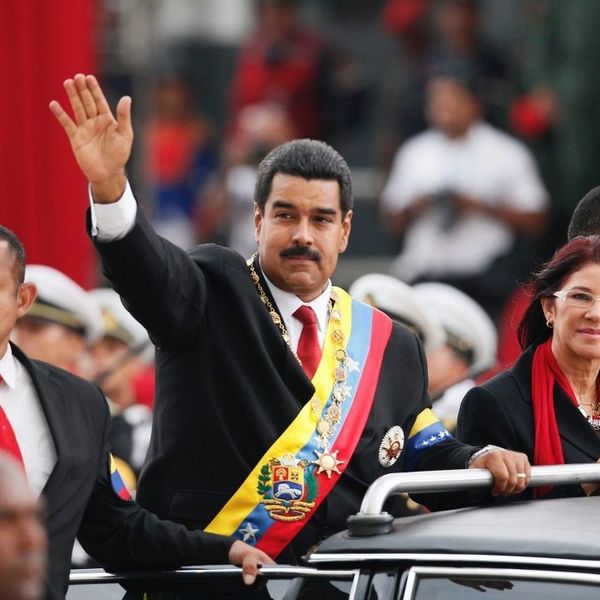OPINION / FINE PRINT — “We have asked the Mexican government to also step up their involvement in stopping these cartels and stopping the huge amount of drugs that are coming across. If the Mexican navy saw a group of American fishermen that they thought were suspicious of potentially moving drugs and they moved in to kill the 15 American citizens without contacting you, without going through any normal procedures, would you be okay with that?...What we do in combat there is reciprocity, and we are concerned about what other militaries will do to us because we have opened the door on this.”
The was Sen. Elissa Slotkin (D-Mich.) speaking back on September 18, during a Senate Armed Services Committee confirmation hearing for Derrick M. Anderson to be Assistant Secretary of Defense for Special Operations and Low-Intensity Conflict and Platte B. Moring III to be the Defense Department Inspector General.
Three days earlier, the U.S. had carried out the second of its attacks on speedboats it said were trafficking drugs in the Caribbean that were destined for the U.S. killing three individuals. The first such attack, on September 1, killed 11 occupants.
Because the jobs both Anderson and Moring were up for would involve them dealing with the Trump administration’s new policy of attacking alleged narco-trafficking boats in international waters, Sen. Slotkin and other Senators raised questions at this hearing that are highly relevant today as these deadly Trump administration attacks have continued in the Caribbean and since Tuesday began in the eastern Pacific.
So far, Defense Secretary Pete Hegseth has reported nine such attacks resulting in the deaths of 37 individuals.
As I will explore below, last month, Armed Services Committee Chairman Sen. Roger Wicker (R-Miss.) at the close of this hearing made a pledge that remains unfulfilled – in effect to hold oversight hearings on the attacks.
Before that happened, Sen. Slotkin made clear, “I have no problem with these groups being designated foreign terrorist organizations. Fentanyl is killing just as many people, if not more, as any terrorist group we have ever seen. But I do have a problem with the lack of transparency and potential violations of international law.”
The Senator then pointed out, “The U.S. government has a way of interdicting ships. You know this. The U.S. Coast Guard uses patrol boats and helicopters. They are able to shoot out a motor and disable the vehicle, board it, and then indict all those people, grab all those people. Show everyone all the drugs that they have secured.”
As I wrote in my column three days ago, the U.S. Coast Guard announced October 14 that it has seized more than 100,000 pounds of cocaine in the eastern Pacific Ocean since launching Operation Pacific Viper in early August, averaging over 1,600 pounds interdicted daily. These drug seizures, and the apprehension of 86 individuals suspected of narco-trafficking, were the result of 34 interdictions since early August.
I also pointed out in that column, that on the day after the Coast Guard release of the success of Operation Pacific Viper, during an Oval Office press conference President Trump said that Coast Guard interdiction “had been ineffective” for 30 years because “they have faster boats.”
As Sen. Slotkin noted above, and I mentioned in my column, the Coast Guard has helicopter-mounted special long-range rifles that can hit and disable the engines mounted at the rear of narco-trafficker speedboats.
While Trump and Hegseth have publicized videos each time a boat has been blown up, I agree with Sen. Slotkin who at the September 18 hearing said, “I would love it if the Trump administration showed us the full video from that encounter, showed us that these men did not have their hands up, that they were not waving a white flag, that they were not turning around and getting out of there, and then show us the drugs. The President said that there were all kinds of drugs that were in that ship. Show it. Show us the video that he is apparently alluding to.”
Hegseth did show what he said were packages of drugs floating on the water after yesterday’s eastern Pacific action, but then the drugs appeared to have been blown up.
The Cipher Brief brings expert-level context to national and global security stories. It’s never been more important to understand what’s happening in the world. Upgrade your access to exclusive content by becoming a subscriber.
Sen. Tim Kaine (D-Va.) followed Slotkin and brought up a series of questions he and 24 other Democratic or Independent Senators had sent to the White House on September 10, and had not received answers. In fact, they have not yet received an answer.
The questions are worth reviewing: “Give us the evidence that these boats were carrying drugs. Tell us who was on the boats. Tell us what your legal authority was to take a military strike that had not been authorized by Congress? The question that I really want to know is why did you decide to attack rather than interdict? If you interdict a drug boat you get evidence. You seize the drugs but you also get evidence by having access to people and often it is that evidence that leads you to be able to go after the kingpins and the real, you know, muscle behind these operators.”
Kaine added, “If you attack a boat and destroy it makes an impact, but you do not get the evidence. It may actually be counter-productive in fighting narco trafficking.”
As I noted above, when Chairman Wicker closed the September 18 hearing, he said, “The questions about what happened in the Caribbean [and now eastern Pacific] are going to have to be answered. This committee has congressional oversight responsibility.”
Earlier, Sens. Wicker and Slotkin had an exchange about what might occur at any future oversight hearing.
Chairman Wicker reminded Slotkin that “each witness has answered in the affirmative to this question, ‘do you agree to provide records, documents, electronic communications in a timely manner when requested by this committee, et cetera.’ So that is on the record.”
Sen. Slotkin asked, “Do you understand that as video? Just to clarify for me, Chairman.”
Chairman Wicker responded, “Documents, records. I think each witness has answered in the affirmative there…and they will be obligated to follow that.”
“Great,” Sen. Slotkin said at one point, “I look forward to the video.”
I think we all do.
The Cipher Brief is committed to publishing a range of perspectives on national security issues submitted by deeply experienced national security professionals.
Opinions expressed are those of the author and do not represent the views or opinions of The Cipher Brief.
Have a perspective to share based on your experience in the national security field? Send it to Editor@thecipherbrief.com for publication consideration.
Read more expert-driven national security insights, perspective and analysis in The Cipher Brief











